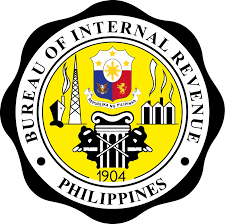
Online gaming collections for philippines administrative fees dropped by 80%
Online gaming operators based in the Philippines do not leave the country in droves but online golden goose from the government seems to have flew the coop, probably for good.
A Philippine presidential spokesman, Harry Roque, attempted on Thursday to downplay the finance secretary's remarks on Wednesday that Philippine Online Gaming Operators (POGO) were heading for the border, opening up vast holes in the commercial real estate market in Manila as they shut down their customer service operations.
Roque told the press Thursday there was "no mass exodus" of the country's POGOs. Roque stated that only one gaming operator had actually fled the country, and that was because the Chinese government was checking it (presumably in Hong Kong) for financing demonstrations.
Roque said the uncertainty emerged because the Bureau of Internal Revenue (BIR) had cleared only "approximately 20 plus" POGO operators to restart operations after the POGO industry closure this spring because of COVID-19. The BIR consequently said POGOs would only be allowed to restart activities if they paid their tax bills unpaid.
A limit of 60 POGO licensees were initially intended to exist, but many of the businesses on the list were not deemed involved. Latest announcements from the Philippine Amusement and Gaming Corporation (PAGCOR) have revised the number to 55, but it is still uncertain how many of them are actually in service.
The BIR official warned this week that POGO tax revenue was dropping because the companies were fearful of reopening – not just because of back tax bills but also because of unresolved worries about COVID-19. POGOs employed a large number of Chinese nationals, many of whom returned to the mainland when their activities were shut down by the pandemic and will now not return because of travel restrictions.
PAGCOR reported on Thursday that its monthly revenue of about P600m (US$12.4m) in regulatory fees had fell by almost half, owing to a 80% reduction in payments from POGOs and their service providers. PAGCOR exec Jose Tria told local media that if not for minimum fixed payments stipulated in POGO licenses the fall would be much greater. Tria also announced that the number of POGOs cleared by the BIR to restart operations had risen from 29 a few weeks earlier to 32, although these operators served only at 30% power.
Among the 218 approved POGO service providers, marginally more than half (111) have been cleared to resume operations, while 42 have officially asked that their accreditation be revoked. Five other permits were revoked including five cancelled POGO licences.
Last week, after the government unveiled plans to replace the 5% online gaming sales tax with a 5% levy on gambling turnover, it's possible that many POGOs who have yet to restart activities have their minds made up for them. If there is something that could turn a POGO into a no-go, then ll do it.





